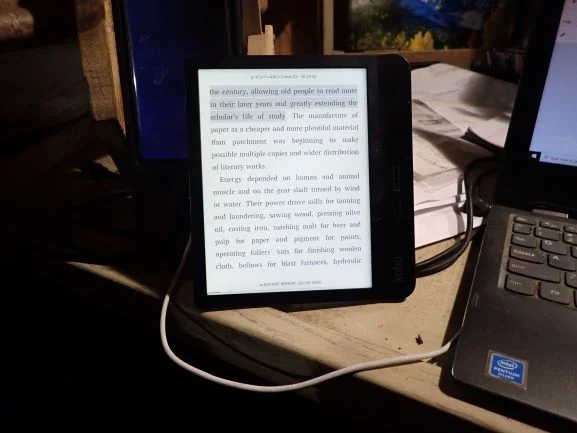A friend and I have talked about how lucky we were to be born in Western Europe or America in the first 15 years after World War II. We thought we had it as good as people are ever going to get it.
That thought hit me again as I read Barbara Tuchman's "A Distant Mirror," about the calamitous 1300s.
Eyeglasses had been in use since [1300 A.D.] , allowing old people to read more in their later years and greatly extending the scholar's life of study.
Those words might sound mild but they hit me with great force. After all I read her words on an eReader. What a huge improvement they are, especially for older eyes!
But won't people born a generation later than me have even better eReaders? Oh sure, they probably will. But how many books will be censored -- directly or indirectly -- by then? We mustn't be so naive as to think that freedom of expression is a natural condition nor that, just because it has existed from time to time, that it is bound to be permanent.
There are several ideals that are supposed to inspire a person -- for example, self-sacrifice or courage -- that don't really inspire me. But whenever I feel gratitude -- either to a person or to an abstraction -- it seems that I am experiencing the 'fairest flower' or one of the 'better angels' of human nature.
If nothing else, the experience needs to be wallowed in, for as long as possible.

Comments